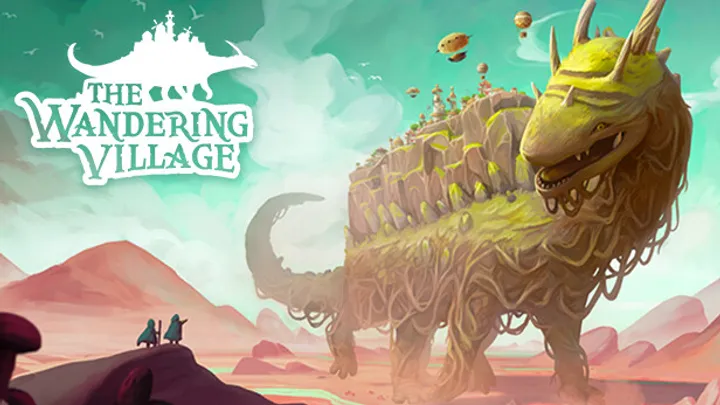Introduction
Zoonomaly is an indie horror-puzzle game developed and published by LIGHTS ARE OFF LLC, released in March 2024. The game places players inside a zoo where mutated creatures and mysterious anomalies have taken over. Players must explore the environment, solve puzzles, collect key shards, and survive encounters with hostile entities.
Rather than focusing on combat or complex mechanics, Zoonomaly emphasizes exploration, environmental storytelling, and clever problem-solving. Its small-scale approach allows it to create tense and immersive moments while remaining accessible to players new to horror or puzzle games. The game combines light survival elements, atmospheric tension, and creative puzzle design to deliver a compact but memorable horror experience.
Narrative & Characters
Zoonomaly features a minimal narrative structure. Players assume the role of an unnamed investigator entering the quarantined zoo to uncover the source of the anomaly. Storytelling is largely environmental: notes, audio logs, and environmental cues provide context and background for the creatures and the zoo’s deterioration.
There are no voiced protagonists or complex character arcs. Instead, the focus is on immersion and player-driven discovery. While some players may desire a deeper narrative, the sparse story design suits the puzzle-oriented gameplay and allows tension to build organically through exploration and encounters.
World & Atmosphere
The game’s world is the primary source of its tension and charm. Each zoo enclosure is unique, featuring themed areas such as aquatics, aviaries, nocturnal houses, and predator exhibits. Environmental hazards, mutated creatures, and altered layouts contribute to the sense of unease.
Lighting and sound play a critical role in atmosphere. Dim corridors, flickering lights, and distorted ambient noises create suspense. Creature movement and unpredictable events add tension, requiring players to observe, plan, and react strategically. The zoo’s nonlinear layout encourages exploration, allowing players to tackle enclosures in different orders and promoting replayability.
Gameplay Mechanics
Core Loop
Players explore enclosures, solve puzzles, collect key shards, and use tools to evade or manipulate threats. Shards are required to progress toward unlocking the central anomaly, encouraging thorough exploration and attention to detail.
Puzzle Design
Environmental puzzles are the heart of Zoonomaly. Players manipulate water levels, reroute power, activate machinery, or use objects strategically to solve challenges. While most puzzles are intuitive, some require trial-and-error, maintaining a balance between challenge and accessibility.
Tools & Abilities
Early in the game, players gain access to a device known as the “Bloom O’Bang,” which temporarily stuns enemies and reveals hidden threats. Resource management is minimal, keeping tension high without burdening players with micromanagement.
Enemy Encounters
Enemies are designed to challenge observation and movement rather than combat. Players must evade or manipulate the environment to survive encounters. Creature AI is predictable enough to be fair but still creates suspense during exploration and puzzle sequences.
Exploration & Shards
Shards are scattered across the zoo and hidden behind puzzles and environmental obstacles. Collecting all shards is essential to unlock the anomaly. The nonlinear placement of shards encourages multiple playstyles and adds replay value.
Technical Execution
Zoonomaly’s visuals are stylized and atmospheric rather than photorealistic. Textures and models are functional, while lighting, shadows, and environmental design heighten the horror mood.
Performance is stable on mid-range PCs, with occasional minor camera or collision quirks that do not significantly impact gameplay. Audio design is strong, using ambient sounds, creature noises, and sparse music to reinforce tension and immersion.
Strengths
- Inventive Zoo Setting: Each enclosure is creatively designed and integrated with puzzles.
- Puzzle-Focused Gameplay: Environmental challenges are rewarding and engaging.
- Nonlinear Exploration: Players can approach the zoo in different orders, enhancing replayability.
- Atmosphere & Audio: Lighting and sound design effectively create suspense.
- Accessible Mechanics: Simple tools and evasion mechanics keep focus on puzzles.
Weaknesses & Concerns
- Puzzle Clarity: Some puzzles are obscure or require trial-and-error.
- Minor Technical Issues: Occasional camera quirks or glitches may appear.
- Sparse Narrative: Limited story content and character development.
- Limited Enemy Variety: Repetition in creature behavior may reduce late-game tension.
- Niche Appeal: Mascot-horror style may not suit all players.
Community Feedback
Zoonomaly has received mostly positive feedback from players, particularly for its creative puzzles and immersive environments. Streamers and content creators have highlighted its tense moments, unique enclosures, and replayability. Criticisms focus on minor technical issues, occasional puzzle ambiguity, and the limited narrative depth. The game maintains a small but active community of dedicated players.
Final Verdict
Zoonomaly is a compact, puzzle-driven indie horror game that delivers a strong sense of atmosphere and tension. While it lacks a deep narrative or expansive creature variety, its environmental puzzles, nonlinear exploration, and effective audio-visual design make it a memorable experience. Players seeking clever puzzles and atmospheric horror will find it satisfying, while those looking for a story-driven or action-heavy experience may want to temper expectations.















































































